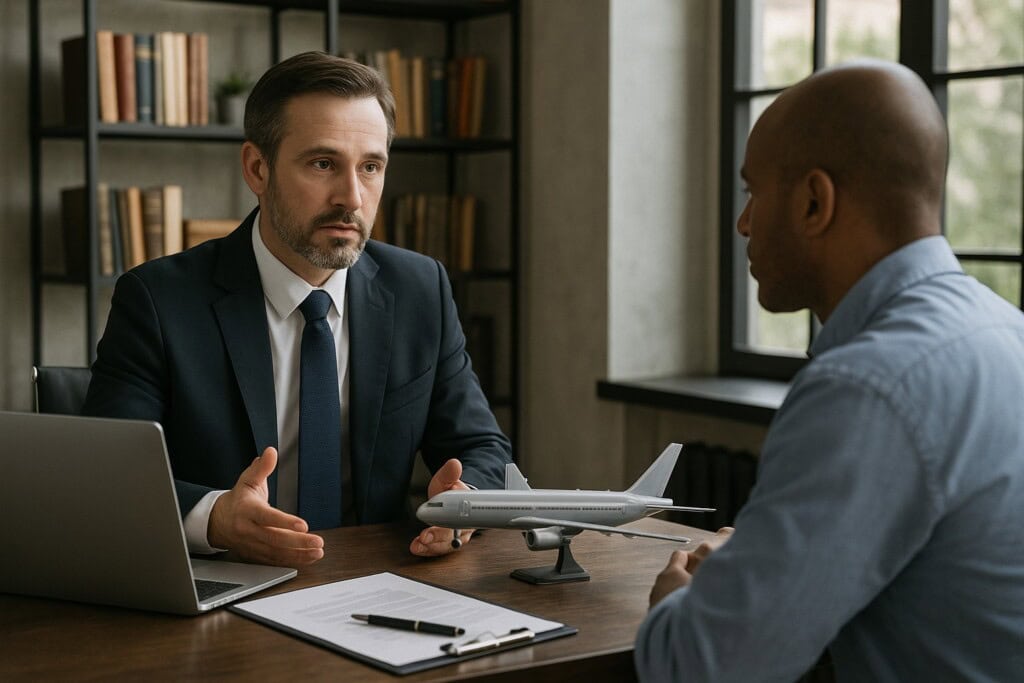Fort Lauderdale, Florida, is known for its thriving aviation industry, with travelers constantly moving through its busy airports and seaports. The city’s role as a gateway to domestic and international destinations makes aviation an essential part of daily life for residents, businesses, and visitors. Yet, with this level of activity comes an increased chance of disputes, accidents, or other legal challenges that extend far beyond typical injury or property claims. Aviation cases are rarely straightforward and involve intricate technical details, international regulations, and multiple parties with overlapping responsibilities.
Addressing these matters requires more than a basic knowledge of the law; it demands attorneys who can analyze flight data, interpret engineering reports, and collaborate with aviation experts to uncover the truth. Beyond accident investigations, they also tackle passenger rights, regulatory disputes, and claims against manufacturers or airlines. For anyone facing such a challenge, global aviation attorneys provide guidance that blends legal precision with a deep understanding of the aviation world to give clients confidence when navigating complex claims.
Understanding Aviation Law
Aviation law refers to the body of law regulating the operation of aircraft and the activities of those involved in aviation. This law covers airplane operations, safe rental agreements, and passenger assistance. Attorneys in this area must be knowledgeable in domestic and global law. They handle advocacy and settlements for activities in the air.
Types of Claims Handled
Aviation attorneys handle various claims, each presenting its unique set of circumstances. Pinpointing fault after an accident means checking and handling claims. Attorneys call in experts to help break down complex accident reports and understand the engineering behind them. When these aviation standard violations occur, there are regulatory disputes. Consider legal situations from aviation corporations, manufacturing enterprises, or professional service organizations. Passenger-related claims, on the other hand, deal with matters like baggage loss or injuries.
Investigative Techniques
Handling of any aviation claim requires a thorough investigation. Lawyers work with pros who genuinely understand the technical side; they make your case much stronger. To understand an incident, attorneys examine flight recorder data, dig through maintenance records, and hear directly from eyewitnesses. You can trust this meticulous approach as it clearly highlights statement discrepancies.
Navigating International Regulations
Aviation attorneys must overcome many regulatory hurdles. International aviation laws and standards for air travel differ from domestic regulations. Attorneys must understand these differences to handle claims involving international flights competently. They bring legal specialists to handle confusing or clashing rules.
Negotiating Settlements
Settlement negotiation is one of the critical roles of an aviation attorney, as many cases get resolved through negotiations rather than litigation. Lawyers guide conversations and help clients reach an agreement that serves everyone’s best interests. Only the best negotiators who know aviation law like the back of their hands can pull this off. Effective communication in talks leads to considerable conservation of time and financial assets for all participants.
Litigation Strategies
Litigation is the last resort when negotiations fall through. Some states have laws that require the aviation attorney to prepare for court scenarios. Thorough examinations will directly inform the foundational blueprints for upcoming cases. Lawyers communicate technical information in a way that judges and juries can understand to get the best possible deal. That’s precisely what they aim for, whether you’re an individual, an airline, or a manufacturer.
Ensuring Compliance
Aviation lawyers also contribute immensely to meeting safety standards. They walk clients through all the government regulations and ensure everything gets updated correctly. This forward-looking measure minimizes the risk of future claims and ensures staff safety. Flying by the book requires them to conduct regular inspections and provide ongoing crew training.
The Importance of Expertise
A good understanding of aviation law is essential to litigating complex claims. Lawyers must keep up with all the latest legal rules and market behaviors. Being aware of these shifts is a professional necessity. They must learn continuously and work with industry experts. This knowledge helps lawyers clearly explain circumstances and argue their points precisely. With this info, clients overcome challenging legal hurdles in the air industry.
Conclusion
Aviation lawyers handle the many challenging legal problems related to air travel. These professionals sift through dense legal codes, chase down clues across state borders, and then hash out a final deal. They ensure compliance and help resolve disputes swiftly with expertise and due diligence. Safety in the skies relies heavily on this role as it manages all aspects of air travel; anyone involved with airplanes gets vital legal instructions from these professionals.


